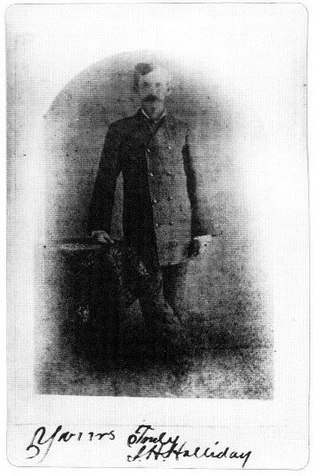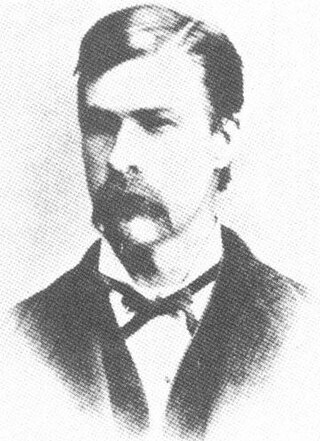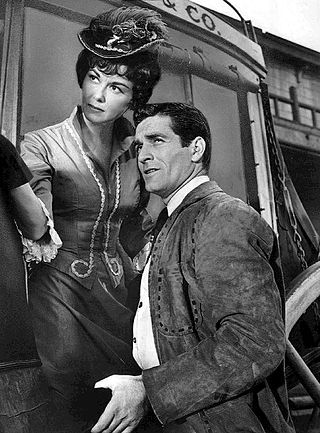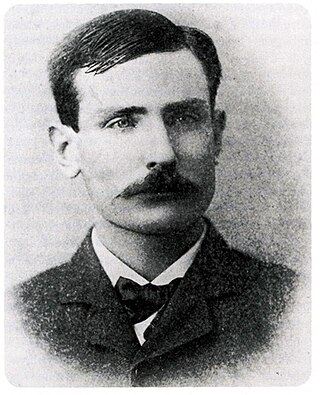Post-acting career
Dinehart's business career began around 1960 with Bank of America. He is now a consultant in litigation and arbitration for FEND, a company based in Los Angeles. [1] [4]
Mason Alan Dinehart | |
|---|---|
| Born | Mason Alan Dinehart III 1936 (age 87–88) |
| Other names | Alan Dinehart, III Mase Dinehart |
| Occupation(s) | Actor (retired 1960) Business consultant |
| Years active | 1948–1960 |
| Children | 8 |
| Parent(s) | Alan Dinehart Mozelle Britton |
Mason Alan Dinehart (born 1936) [1] is an American business consultant and retired actor best known for his role as a youthful Bat Masterson in 34 episodes between 1955 and 1959 of the ABC/Desilu television series The Life and Legend of Wyatt Earp , starring Hugh O'Brian in the title role of the frontier marshal Wyatt Earp. [2] He is also known as Mason Alan Dinehart III, Alan Dinehart III, and Mase Dinehart.
In 1936, he legally changed his name to Mason Alan Dinehart, the same name as his father, so that his younger son from the second marriage could be known as Mason Alan Dinehart III. This name change created confusion because the senior Dinehart's first son from his first marriage was already Alan Dinehart Jr, [3] the former animation and voice director for Hanna-Barbera. [1]
Dinehart played the youthful Bat Masterson who is the protege of Wyatt Earp in learning the proper techniques of frontier law enforcement. Earp usually calls him "Mr. Masterson". In a 1956 episode "Bat Masterson Again," Earp shows young Masterson the proper use of a pistol. During this time Masterson was elected sheriff of Ford County, Kansas, which includes the county seat of Dodge City. Bill Tilghman had been denied the right to run for sheriff again. Earp as an appointed town marshal works with an elected sheriff, and their differences in jurisdiction do not cause any problems. Bat's brother, Ed Masterson, played by Brad Johnson, formerly the deputy sheriff on the Annie Oakley television series, is shot in an ambush by drunken cowboys, and Masterson settles the score. When Earp finally comes to Tombstone, Arizona Territory, he lacks the working relationship with Sheriff Johnny Behan that he had in Kansas with Bat Masterson. [1]
Dinehart's performance of Masterson was so highly regarded that ABC offered him a spinoff series, but he declined, soon left acting, and entered the business field. Dinehart's last appearance on the series is the episode "Dodge Is Civilized" (April 28, 1959), in which he serves notice that he is headed to Tombstone, where he hopes Earp will join him in time. There is never a reunion show, and the Masterson character, now a gambler, is written out of The Life and Legend of Wyatt Earp. The historical Earp did visit Tombstone to see his friend Masterson, who in time became a figure of western folklore, finishing his long career as a sportswriter in New York City. Masterson's hat inspired the name of the Brown Derby restaurants in Los Angeles. [1]
By the time Dinehart left The Life and Legend of Wyatt Earp, Gene Barry had already assumed for nearly a year the role of a more mature Masterson, one in his early forties, in the NBC western series Bat Masterson . Some viewers complained of the change in actors portraying Bat Masterson, [1] but in time Barry was the one most remembered for the role, not Dinehart, who left show business.
Dinehart's business career began around 1960 with Bank of America. He is now a consultant in litigation and arbitration for FEND, a company based in Los Angeles. [1] [4]

The gunfight at the O.K. Corral pitted lawmen against members of a loosely organized group of cattle rustlers and horse thieves called the Cowboys on October 26, 1881. While lasting less than a minute, the gunfight has been the subject of books and films into the 21st century. Taking place in the town of Tombstone in Arizona Territory, the battle has become one archetype of the American Old West. The gunfight was the result of a long-simmering feud between five outlaws and four representatives of the law, including three brothers. The trigger for the event was the local marshal's decision to enforce a city ordinance that prohibited the carrying of weapons into town. To enforce that ordinance, the lawmen would have to disarm the Cowboys.

John HenryHolliday, better known as Doc Holliday, was an American dentist, gambler, and gunfighter who was a close friend and associate of lawman Wyatt Earp. Holliday is best known for his role in the events surrounding and his participation in the gunfight at the O.K. Corral in Tombstone, Arizona. He developed a reputation as having killed more than a dozen men in various altercations, but modern researchers have concluded that, contrary to popular myth-making, Holliday killed only one to three men. Holliday's colorful life and character have been depicted in many books and portrayed by well-known actors in numerous movies and television series.

Wyatt Berry Stapp Earp was an American lawman in the American West, including Dodge City, Deadwood, and Tombstone. Earp was involved in the gunfight at the O.K. Corral, during which lawmen killed three outlaw Cochise County Cowboys. While Wyatt is often depicted as the key figure in the shootout, his brother Virgil was both Deputy U.S. Marshal and Tombstone City Marshal that day and had considerably more experience in law enforcement as a sheriff, constable, and marshal than did Wyatt. Virgil made the decision to enforce a city ordinance prohibiting carrying weapons in town and to disarm the Cowboys. Wyatt was only a temporary assistant marshal to his brother.

Bat Masterson is an American Western television series which was a fictionalized account of real-life marshal, gambler, and journalist Bat Masterson. The title character was played by Gene Barry, and the half-hour black-and-white series ran on NBC from 1958 to 1961. The show was produced by Ziv Television Productions. "Bat" is a nickname for Masterson's first name Bartholemew, although the fictional Masterson says that his name is William Barkley Masterson.

Bartholemew William Barclay "Bat" Masterson was a U.S. Army scout, lawman, professional gambler, and journalist known for his exploits in the late 19th and early 20th-century American Old West. He was born to a working-class Irish family in Quebec, but he moved to the Western frontier as a young man and quickly distinguished himself as a buffalo hunter, civilian scout, and Indian fighter on the Great Plains. He later earned fame as a gunfighter and sheriff in Dodge City, Kansas, during which time he was involved in several notable shootouts.

Morgan Seth Earp was an American sheriff and lawman. He served as Tombstone, Arizona's Special Policeman when he helped his brothers Virgil and Wyatt, as well as Doc Holliday, confront the outlaw Cochise County Cowboys in the gunfight at the O.K. Corral on October 26, 1881. All three Earp brothers had been the target of repeated death threats made by the Cowboys who were upset by the Earps' interference in their illegal activities. The lawmen killed Cowboys Tom and Frank McLaury and Billy Clanton. All four lawmen were charged with murder by Billy's older brother, Ike Clanton, who had run from the gunfight. During a month-long preliminary hearing, Judge Wells Spicer exonerated the men, concluding they had been performing their duty.

Hugh O'Brian was an American actor and humanitarian, best known for his starring roles in the ABC Western television series The Life and Legend of Wyatt Earp (1955–1961) and the NBC action television series Search (1972–1973). His notable films included the adaptation of Agatha Christie's Ten Little Indians (1965); he also had a notable supporting role in John Wayne's last film, The Shootist (1976).

The Life and Legend of Wyatt Earp is the first Western television series written for adults. It premiered four days before Gunsmoke on September 6, 1955. Two weeks later came the Clint Walker western Cheyenne. The series is loosely based on the life of frontier marshal Wyatt Earp. The half-hour, black-and-white program aired for six seasons on ABC from 1955 to 1961, with Hugh O'Brian in the title role.

Wyatt Earp is a 1994 American epic biographical Western drama film directed and produced by Lawrence Kasdan, and co-written by Kasdan and Dan Gordon. The film covers the lawman of the same name's life, from an Iowa farmboy, to a feared marshal, to the feud in Tombstone, Arizona that led to the O.K. Corral gunfight. Starring Kevin Costner in the title role, it features an ensemble supporting cast that includes Gene Hackman, Mark Harmon, Michael Madsen, Bill Pullman, Dennis Quaid, Isabella Rossellini, Tom Sizemore, JoBeth Williams, Joanna Going, Mare Winningham and Jim Caviezel in one of his earliest roles.

The Dodge City War was a bloodless conflict that took place between Luke Short and the Dodge City mayor, who tried to force Short to close the Long Branch Saloon and leave town. Luke called on several friends, including Wyatt Earp and Bat Masterson, who supported him during his confrontation from April 28 to June 7, 1883. The event is best remembered because it produced one of the most iconic photos of Western gamblers and gunfighters who played roles in the history of the Wild West.

The Earp Vendetta Ride was a deadly search by a federal posse led by Deputy U.S. Marshal Wyatt Earp for a loose confederation of outlaw "Cowboys" they believed had ambushed his brothers Virgil and Morgan Earp, maiming the former and killing the latter. The two Earp brothers had been attacked in retaliation for the deaths of three Cowboys in the Gunfight at the O.K. Corral on October 26, 1881. From March 20 to April 15, 1882, the federal posse searched southeast Cochise County, Arizona Territory for the men they believed were responsible for the attacks on Virgil and Morgan. Several suspects had been identified and were charged, but were soon released by the court, owing in some cases to legal technicalities and in others to the strength of alibis provided by the Cowboy gang. Wyatt subsequently pursued the suspects with a federal warrant.

Edward John Masterson was a lawman and the oldest brother of the American West gunfighters Bat Masterson and James Masterson.

James Patrick Masterson, was a lawman of the American West and a younger brother of gunfighters and lawmen Bat Masterson and Ed Masterson.

Wyatt Earp: Frontier Marshal (1931) was a best-selling biography of Wyatt Earp written by Stuart N. Lake and published by Houghton Mifflin Company. It was the first biography of Earp, written with his contributions. It established the Gunfight at the O.K. Corral in the public consciousness and conveyed an extraordinary story about Wyatt Earp as a fearless lawman in the American Old West. Earp and his wife Josephine Earp tried to control the account, threatening legal action to persuade Lake to exclude Earp's second wife from the book. When the book was published, neither woman was mentioned.

Ronald G. Hayes was an American television actor, who as an activist in the environmental movement, worked for the establishment of the first Earth Day, observed on April 22, 1970. He was a member of the Sierra Club and a founder of the ecological interest group Wilderness World.

Dora Hand, her stage name was Fannie Keenan,, was an American dance hall singer and actress in Dodge City, Kansas, who was mistakenly shot to death from ambush by a young unwanted suitor who was acquitted of criminal charges in the case. Hand was also linked romantically with James H. "Dog" Kelley, the mayor of Dodge City from 1867 to 1871.

Wild Bill Hickok is a 1923 American silent Western film directed by Clifford Smith and starring William S. Hart, Ethel Grey Terry, Kathleen O'Connor, James Farley, Jack Gardner, Carl Gerard, and William Dyer. It was written by William S. Hart and J.G. Hawks. The film was released on November 18, 1923, by Paramount Pictures. It was the first film to depict Wyatt Earp, although in a very brief role, and the only film made before he died in 1929 that included his character, until Law and Order was released in 1932.

Wyatt Earp was an American Old West lawman and gambler in Cochise County, Arizona Territory, and a deputy marshal in Tombstone, Arizona Territory.

Francis J. Scannell was an American film and television actor. He appeared in over 100 films and television programs, including six appearances in the American western television series The Life and Legend of Wyatt Earp.

James H. "Dog" Kelley was the Dodge City, Kansas, mayor from 1877 to 1881. As mayor Kelley worked with US Marshalls and sheriffs. As mayor Kelley worked with well known lawmen in the Old West. The lawmen included: Bat Masterson, James Masterson, Ed Masterson, Wyatt Earp and Morgan Earp. Kelley arrived in Dodge City with General George Custer in 1872. Kelley worked for Custer as his orderly and took care of Custer's horses and his pack of greyhounds. His friend and entertainer, Dora Hand, was killed on October 4, 1878, in his home while he was out of town. James H. Kelley was born on February 19, 1834, in Manchester, England. Kelley died in September 1912 and is buried at the Fort Dodge Cemetery.